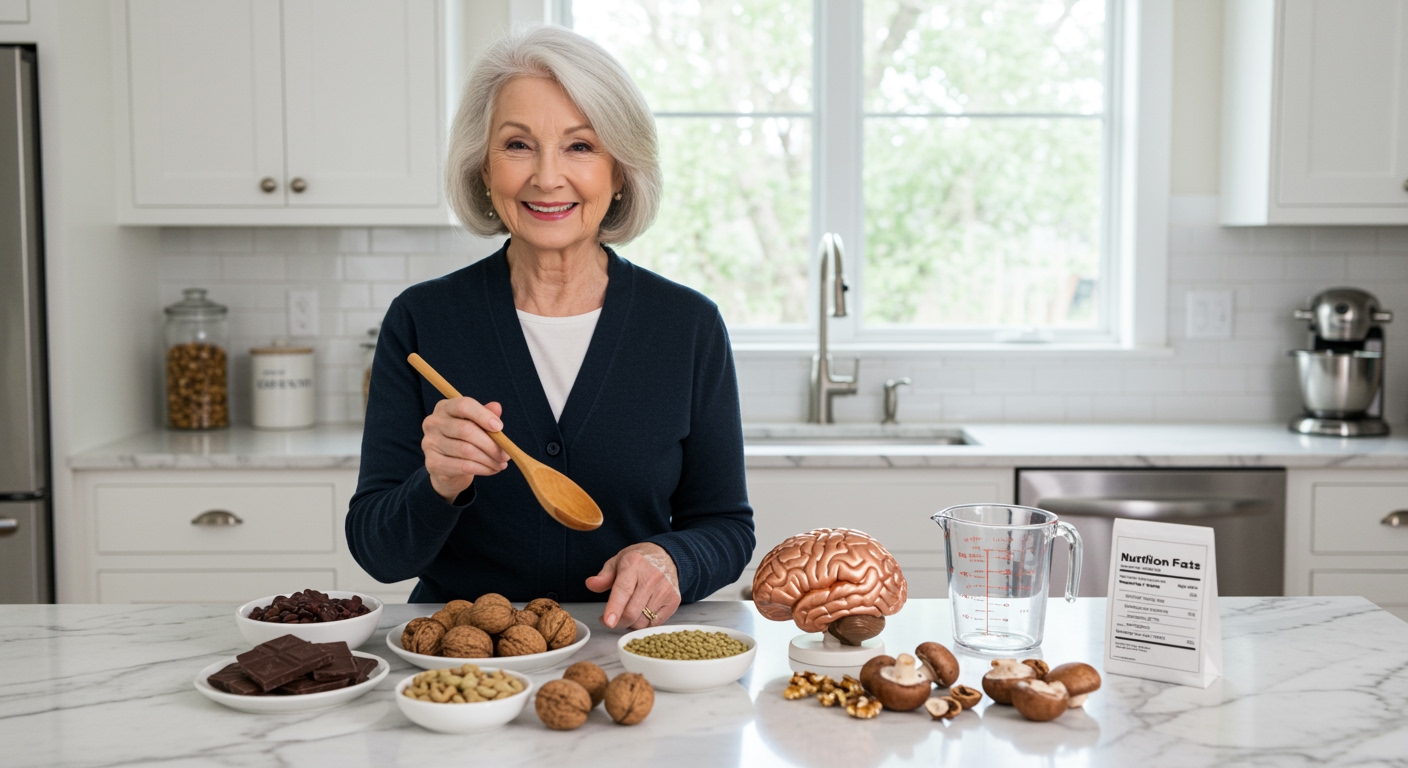✪ Key Highlight: New research shows optimal copper intake of 1.22mg daily protects brain function in seniors, but too much can cause damage.
Introduction
Most people worry about getting enough vitamin D or calcium as they age.
But a groundbreaking study from China reveals that copper deficiency might be silently destroying your brain function right now.
Hi, I’m Abdur, your nutrition coach and today I’m going to analyze this fascinating research that shows how a simple mineral could be the key to protecting your mind as you age.
What Did This Brain Study Actually Find?
Researchers from Hebei Medical University studied 2,420 American adults over 60 years old to understand how copper affects brain function.
They discovered that people who consumed more copper scored significantly higher on cognitive tests compared to those with lower intake.
The study, published in Scientific Reports, revealed a fascinating threshold effect where benefits peaked at a specific amount.
Beyond this optimal level, eating more copper did not provide additional brain protection.
The researchers found this pattern especially strong in participants who had previously suffered strokes.
This suggests that copper plays a crucial role in brain recovery and ongoing cognitive maintenance.
✪ Fact: Your brain uses copper to produce neurotransmitters that control memory and learning.
How Much Copper Does Your Brain Actually Need?
The study identified 1.22 milligrams per day as the optimal copper intake for brain health.
This amount represents a sweet spot where your brain gets maximum protection without risking toxicity.
Copper functions as a cofactor for enzymes that produce neurotransmitters like dopamine and norepinephrine.
These brain chemicals control your ability to focus, remember information, and make quick decisions.
The mineral also supports the formation of myelin, the protective coating around nerve fibers that speeds up brain communication.
Without adequate copper, your brain literally cannot function at its full capacity.
✪ Pro Tip: Track your copper intake for one week to see if you’re meeting the optimal 1.22mg daily target.
Which Foods Give You The Most Brain-Protecting Copper?
Dark chocolate tops the list with about 0.5 milligrams of copper per ounce.
One cup of cooked lentils provides approximately 0.25 milligrams of this essential brain mineral.
Walnuts deliver about 0.2 milligrams per quarter cup, making them an excellent daily snack choice.
Mushrooms, especially shiitake varieties, contain roughly 0.15 milligrams per cup when cooked.
Other excellent sources include cashews, sunflower seeds, and organ meats like liver.
Combining these foods throughout your day makes reaching the optimal 1.22 milligrams completely achievable through diet alone.
✪ Note: Cooking in copper pots can increase copper content, but this method is unreliable for consistent intake.
Why Too Much Copper Becomes Dangerous For Your Brain?
The same research that showed copper benefits also revealed a dark side to excessive intake.
High copper levels can interact with amyloid-beta proteins in the brain, which are linked to Alzheimer’s disease.
Excess copper promotes oxidative stress, causing cellular damage that accelerates brain aging.
Studies show that copper overload negatively affects working memory and executive function in older adults.
The mineral can accumulate in brain tissues over time, leading to neuronal damage if not properly balanced.
This explains why the research found no additional benefits beyond the optimal 1.22 milligram threshold.
✪ Pro Tip: Avoid copper supplements unless prescribed by a doctor, as food sources provide safer, more balanced intake.
What Are The Limitations Of This Research?
The study relied on participants self-reporting their food intake, which can lead to inaccurate data.
Researchers only captured two days of dietary information, not long-term eating patterns.
The study design cannot prove that copper directly causes better brain function, only that they’re associated.
Other factors like genetics, exercise, and overall diet quality could influence the results.
The research focused only on older American adults, so results may not apply to younger populations or other ethnicities.
Despite these limitations, the findings align with previous research showing copper’s importance for brain health.
✪ Note: Long-term studies are needed to confirm these findings and establish definitive copper recommendations.
The Bottom Line
This research reveals that getting the right amount of copper could be a simple yet powerful way to protect your brain as you age.
The key is balance – not too little, not too much, but just the right amount through whole foods.
I’d love to hear your thoughts on this research or any questions you might have about incorporating copper-rich foods into your daily routine in the comments below.
References
At NutritionCrown, we use quality and credible sources to ensure our content is accurate and trustworthy. Below are the sources referenced in creating this article:
- Economic Times: Copper for a smarter you: Study finds this mineral may boost brain health as you age
- ScienceAlert: Copper Linked to Better Brain Function in Old Age, Diet Study Suggests
- PMC: Copper and cognitive function in older adults
- Frontiers in Aging Neuroscience: Low Serum Copper Levels Are Associated With Poorer Cognitive Performance in Older Adults
- Medical Xpress: Higher copper intake linked to better cognitive function in older adults





